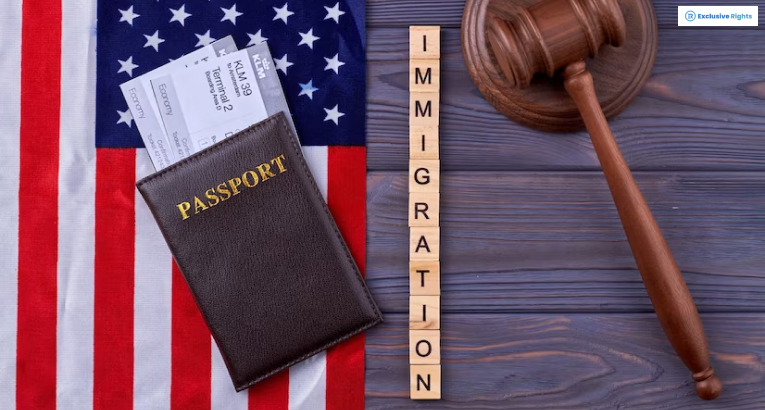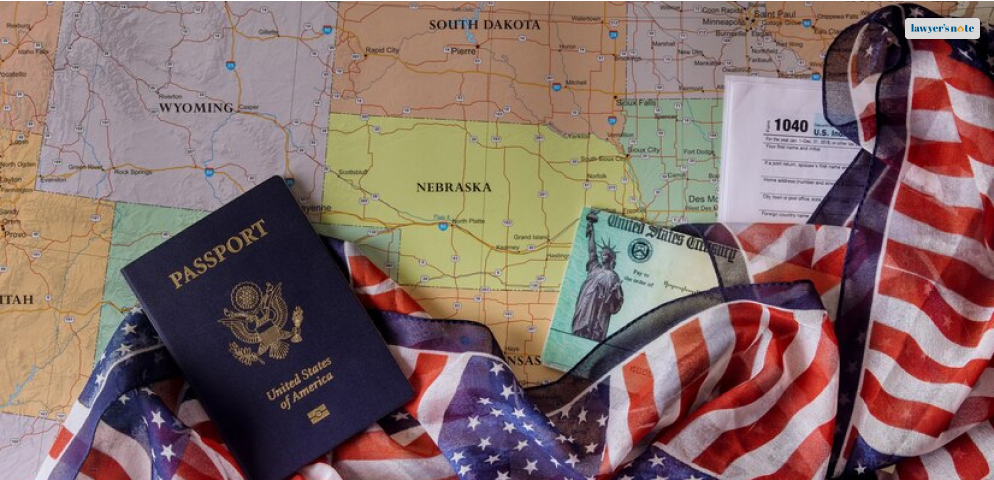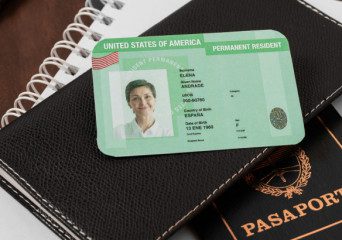
Table Of Contents
- Federal Role In US Immigration System
- 1. The Federal Authority
- 2. Customs and Border Protection (CBP)
- 3. U.S. Citizenship and Immigration Services (USCIS)
- 4. Immigration and Customs Enforcement (ICE)
- 5. The State Department's Role In US Immigration
- 6. Immigration Laws and Acts
- 7. Immigration Courts and the Department of Justice
- Final Words
What Is The Federal Role In US Immigration?
The US is known as the “land of opportunities,” having a rich history that has welcomed immigrants for a long time. Moreover, as America continues to inspire many to come to visit its lands, you have to understand the complexities of immigration laws. In this article, we will discuss the federal role in US Immigration.
Federal Role In US Immigration System

The US is a diverse nation which is home to various cultures. Similarly, it is a nation that owns its origin from a high-level influx of immigrants for many years. Additionally, the US is a nation with various federal laws and regulations relating to the niche of immigration. These factors have shaped the overall immigration system within the US.
The United States Citizenship and Immigration Services (USCIS) is one such federal agency that overlooks immigration matters. Along with this, Immigration and Customs Enforcement (ICE) is another. Moreover, the federal government has a varied role in the enforcement and regulation of immigration laws.
Eligible individuals are allowed to enter the nation legally. This is made possible through the inclusion of immigration policies and regulations. Additionally, inspite of allowing immigrants to enter the nation, these policies do not go against the economic and security concerns.
In such situations, you must be aware of the federal role in US immigration that protects the land that provides aspiration to many.
1. The Federal Authority
Within the complexities of immigration in the US lies the US Constitution. This means that every federal rule that has been outlined for immigration is overseen by the Constitution.
Article I of Section 8 of the US Constitution is a vital aspect of a federal role in immigration. This section of the Constitution provides power in the establishment and regulation of immigration laws. Similarly, the mandate is widely spread and engulfs a wide variety of immigration matters.
On the other hand, there is also the inclusion of admission of immigrants, visa processing, and naturalization processes. It also provides the authority to Congress to regulate the entry and exit of goods across the US borders.
Article I, Section 8, is important as it allows for the shaping of immigration policies. Additionally, it also serves as a foundation for federal agencies to have authority over immigration. Federal agencies also provide a clear legal framework for the improvement of immigration policies within the nation.
Further, by having a greater understanding of this part of the Constitution, you will have a fair idea of the complexities of US immigration.
2. Customs and Border Protection (CBP)

Customs and Border Protection (CBP) is another federal agency that is under the supervision of the Department of Homeland Security (CBP). The CBP is known to play a vital role in protecting the US borders.
This agency is also known for its capacity to detect and prevent the entry of unauthorized persons, illegal goods, and matters that are threats to national security. Moreover, the CBP also serves as a border control in the US.
The responsibilities of CBP include safeguarding the trafficked ports in vast bordered areas. This allows them to effectively maintain the integrity and security of the nation’s borders.
This immigration agency employs a team of highly trained professionals skilled for their alertness to watch over the borders of the US. Additionally, CBP uses advanced screening technologies to detect unauthorized entry.
Additionally, the primary focus of this immigration agency is the maintenance of security and safety, which primarily enforces laws related to immigration. On the other hand, its officers are known to collaborate with other law enforcement to resolve potential threats to national security.
3. U.S. Citizenship and Immigration Services (USCIS)

Another federal agency that oversees immigration in the US is The United States Citizenship and Immigration Services (USCIS). USCIS is responsible for a variety of immigration services. This includes supervising the naturalization and processing of visa applications.
This federal agency is also known to assure those willing to enter the US in a legal and secure manner. The USCIS also acts as a reviewing and approval mechanism for green cards, visas, and other immigration-based services. Moreover, it also provides an informational database to clear naturalization examinations for immigrants.
4. Immigration and Customs Enforcement (ICE)

The matter related to US immigration tends to gather speculation of critique and controversy. In such matters, the U.S. Immigration and Customs Enforcement (ICE) stands tall in the enforcement of immigration rules and regulations.
ICE is also known to take the responsibility to maintain immigration laws. This includes determining individuals who have been known to violate US immigration laws. The process is done through apprehension, detention, and, finally, removal.
This federal agency maintains significant authority in the maintenance of order within the immigration system of the US. Moreover, it also collaborates with other federal agencies for the enforcement of immigration regulations across the nation.
Irrespective of various challenges surrounding the job role of ICE, it still remains a vital part of the US government to manage the influx of immigration. This is particularly maintained for safe and secure immigration.
5. The State Department’s Role In US Immigration
Now, we will get into the role of the State Department in US immigration. The state plays a role in carrying out US foreign policies and fostering diplomatic relations with other states.
The agency functions through a large network of embassies and consulates. This further acts as an architecture for diplomacy and facilitation of immigration. Additionally, the State Department also supervises visa processing that passes through embassies and consulates. Along with these, the US also posts diplomats who are skilled in handling American matters on foreign soil with ease. Due to this, the interests of the US are protected.
Alongside this, the State Department also tends to encourage understanding with US allies. Similarly, if you are someone seeking to get into the US, the State Department will be your go-to destination.
6. Immigration Laws and Acts
Congress plays a vital role by being the primary legislative body of the US. It is also known to shape the various immigration policies within the US. It goes through a long process of drafting, debating, and voting to finally pass a new immigration law.
Additionally, it also creates legislation that acts as a blueprint regarding eligibility requirements, admission criteria, and other factors that will define immigration to the US.
The importance of creating legislation is to determine which nationals are allowed to enter the US and what process they must comply with to do the same. Moreover, it also states the rights and duties immigrants have in the US.
7. Immigration Courts and the Department of Justice

As you peer into the solemn courtroom, the intricate and delicate dance of justice unfolds before your eyes. Moreover, the Department of Justice, with its vast experience and resources, orchestrates the proceedings, ensuring that the rule of law is adhered to at all times.
One of the key components of the federal government’s role in immigration is the immigration court system. Moreover, it plays a crucial role in deciding the fate of immigrants seeking refuge in the United States.
With its confusing appeals and decisions, the immigration court system shapes the ongoing narrative of immigration policy in the country. Moreover, the stakes in these courts are high. Similarly, the decisions made here have the power to change the lives of individuals and families seeking a better life in the land of the free.
Final Words
As the threads of federal authority weave through the immigration landscape, the story of America continues to unfold. From constitutional roots to the enforcement arm, each element contributes to the nation’s ever-evolving narrative. Moreover, embracing the complexities of this system is key to understanding the guardianship that the federal government provides as the gateway to the American dream.
Read Also:









